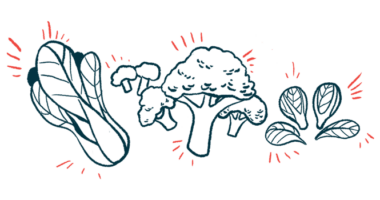Questioning cascades of care helped me tweak my treatment regimen
As a patient, it's good to be informed and feel confident in asking questions

About a year ago, I attended a conference that addressed the topic of cascades of care, which an editorial in American Family Physician defined as “a seemingly unstoppable succession of medical services often initiated by an unnecessary test or unexpected result and driven by the desire to avoid even the slightest risk of missing a potentially life-threatening condition.” The doctor who gave the presentation left me with the impression that these cascades are a terrible thing, full stop.
As an example, the doctor described a patient in a clinic with two grocery bags full of medication and no clue what the medicines did. That made me worry about the amount of medication I take, and I was afraid I had become the person he was describing.
People with chronic obstructive pulmonary disease (COPD) often have comorbidities, so I imagined that we probably are good candidates for cascades of care. With that concern in mind, I did a lot of research on the topic.
Questions lead to answers
The American Council on Science and Health uses cataract surgery to demonstrate the cascading of care:
“Cataract surgery is probably the most performed procedure for Medicare beneficiaries; it has a 90-day mortality rate of about 0.7% on a bad day. … For patients undergoing cataract surgery who have no symptoms of coronary disease, a pre-operative electrocardiogram (EKG), is often used, out of ‘an abundance of caution,’ as a screening tool and is acknowledged to be of low value and little yield for the effort and cost.”
This article made me think about my atrial fibrillation (AFib), a condition in which the heart beats faster. An EKG didn’t detect my AFib, but a trained sonographer in the cardiologist’s office and a Holter monitor did. This knowledge led me to question why the EKG was performed during my annual health screening. I was told that since the facility has the equipment and the cost is minimal, the healthcare team wanted to visualize my heart rhythm.
While I didn’t refuse the EKG that time, I might do so next year. I see a cardiologist for my AFib, so I don’t think I need an EKG. It seems logical to me that if I no longer do a pulmonary function test at these annual checkups because I see a pulmonologist, then I probably don’t need an EKG, because I see a cardiologist.
Another result of my questioning the usefulness of care cascades was an evaluation of all the medications and supplements I take by the doctor conducting my physical exam. This evaluation produced a chart that lists each medication and supplement, the reason I take them, and the frequency. The doctor also suggested some modifications to the supplements.
All of these actions made me feel better about the quality of my care.
The more research I did on the matter, the more I suspected that the cascading of care might be driven more by financial motivations than by the quality of care a patient receives, but this is only my opinion. I do know that cost is an important consideration for both patients and insurance companies.
As I reflect on all of this, I would say that making sure we patients know what medications we are taking, and why we are taking them, is a helpful strategy. And it’s important to build a good working relationship with our physicians so that we can have important conversations about this and other topics.
What are your thoughts about cascades of care? Please share in the comments below.
Note: COPD News Today is strictly a news and information website about the disease. It does not provide medical advice, diagnosis, or treatment. This content is not intended to be a substitute for professional medical advice, diagnosis, or treatment. Always seek the advice of your physician or other qualified health provider with any questions you may have regarding a medical condition. Never disregard professional medical advice or delay in seeking it because of something you have read on this website. The opinions expressed in this column are not those of COPD News Today or its parent company, BioNews, and are intended to spark discussion about issues pertaining to chronic obstructive pulmonary disease.








Comments